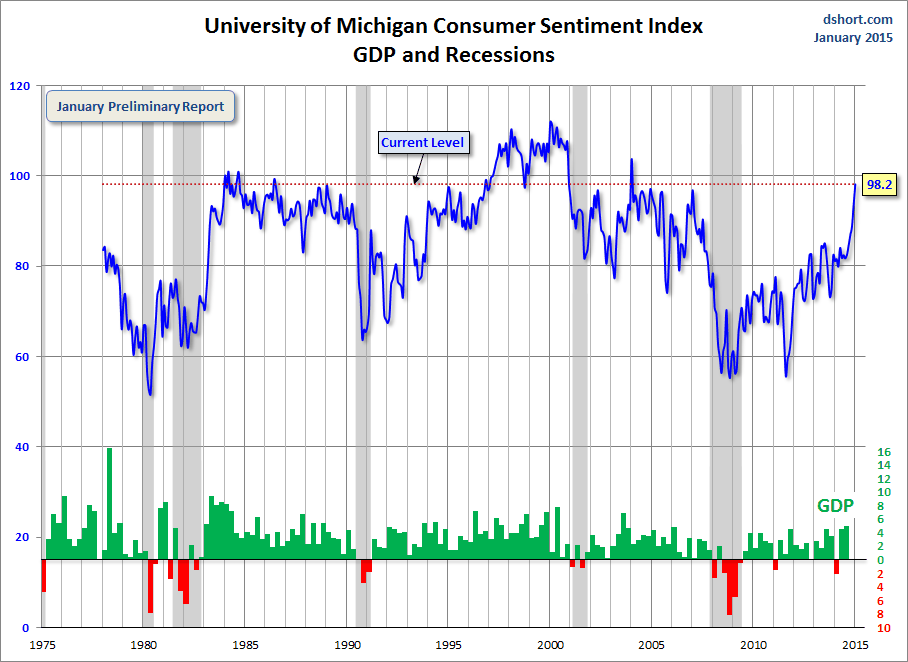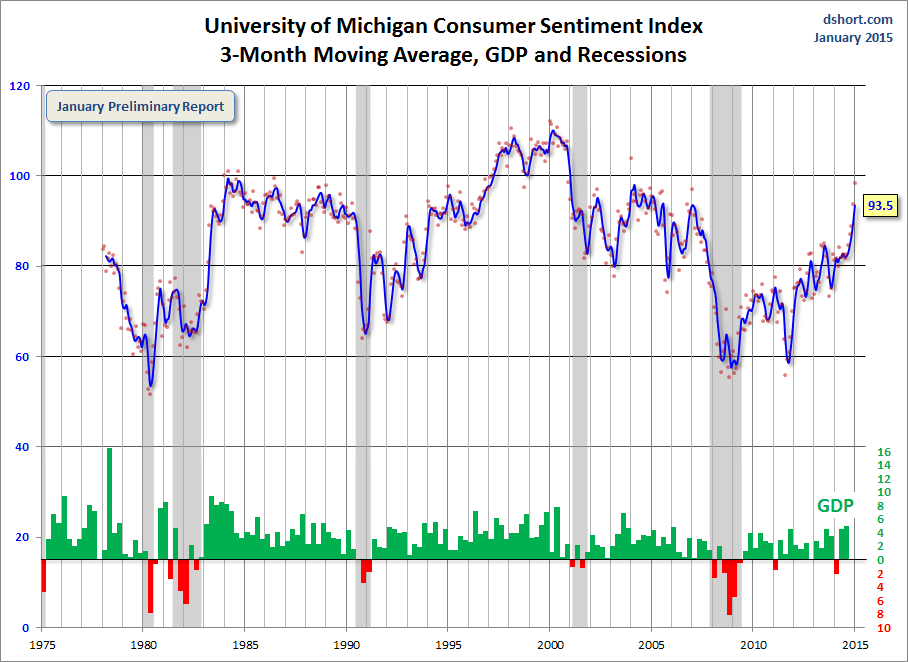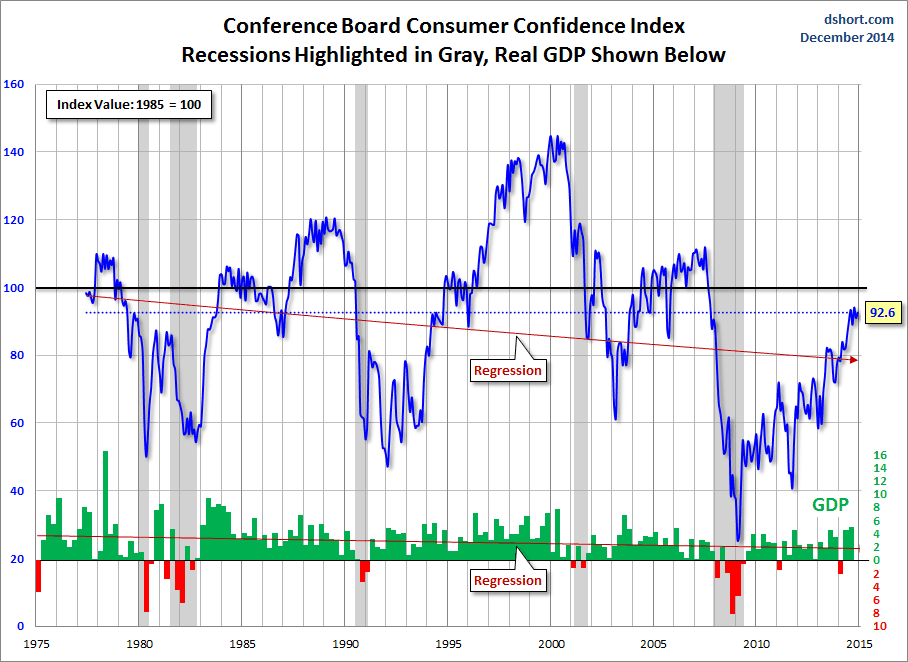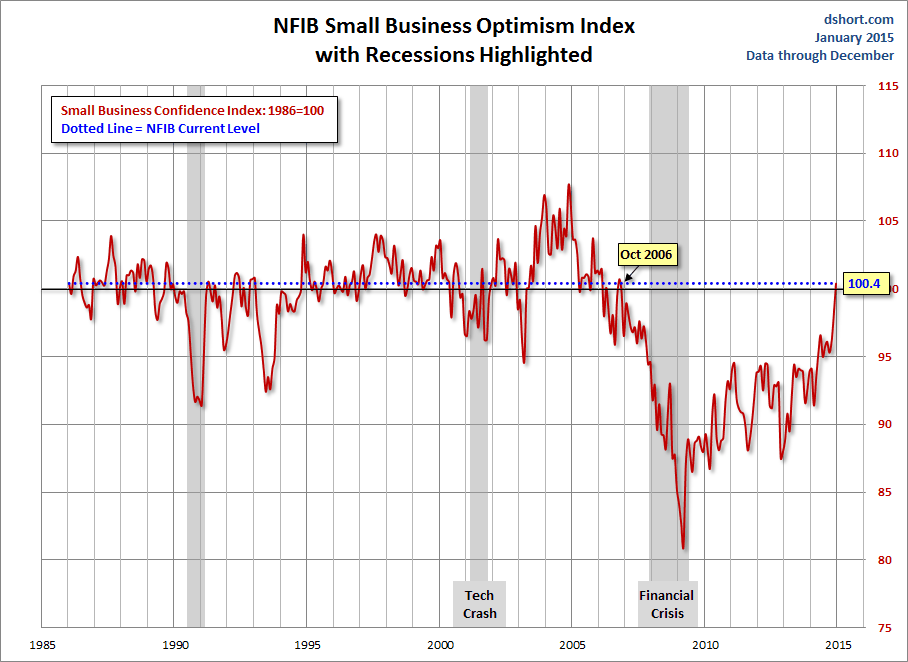The Preliminary University of Michigan Consumer Sentiment for January came in at 98.1, a strong surge from last month's final reading of 93.6. This is the highest level of sentiment in eleven years. Today's sentiment level came in substantially above the Investing.com forecast of 94.1.
See the chart below for a long-term perspective on this widely watched indicator. I've highlighted recessions and included real GDP to help evaluate the correlation between the Michigan Consumer Sentiment Index and the broader economy.
To put today's report into the larger historical context since its beginning in 1978, consumer sentiment is now 15 percent above the average reading (arithmetic mean) and 17 percent above the geometric mean. The current index level is at the 88th percentile of the 446 monthly data points in this series.
The Michigan average since its inception is 85.1. During non-recessionary years the average is 87.4. The average during the five recessions is 69.3. So the latest sentiment number puts us 28.9 points above the average recession mindset and 10.8 points above the non-recession average.
Note that this indicator is somewhat volatile with a 3.1 point absolute average monthly change. The latest month was a larger 4.6 point change. For a visual sense of the volatility, here is a chart with the monthly data and a three-month moving average.
For the sake of comparison, here is a chart of the Conference Board's Consumer Confidence Index (monthly update here). The Conference Board Index is the more volatile of the two, but the broad pattern and general trends have been remarkably similar to the Michigan Index.
And finally, the prevailing mood of the Michigan survey is also similar to the mood of small business owners, as captured by the NFIB Business Optimism Index (monthly update here).
The general trend in the Michigan Sentiment Index since the Financial Crisis lows had been one of slow improvement. But it has now surged to a dramatic eleven-year high.




